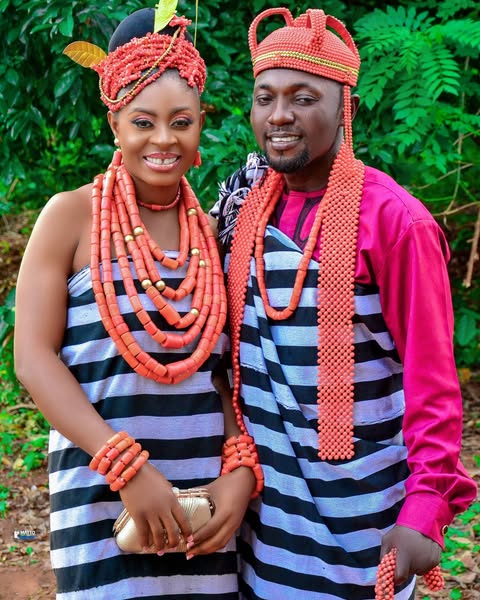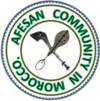Afemai Traditional and Marriage Rites
Afemai Traditional Marriage Doings
Marriage among the Afemai people—an ethnic group in the northern part of Edo State, Nigeria, comprising the Etsako, Owan, and Akoko-Edo subgroups—is considered a sacred and communal institution. Deeply rooted in tradition, respect, and family involvement, the Afemai marriage process goes beyond the union of two individuals; it is a merger of families, lineages, and even communities. Despite the influence of modern life and religion, many Afemai people still uphold their traditional marriage customs and rites, which emphasize values such as commitment, consent, respect for elders, and communal approval.

Stages of Traditional Marriage Among the Afemai People:
Pre-Marriage: Courtship and Family Inquiry
1. Courtship: It begins when a young man expresses interest in a woman. In traditional settings, this might happen through personal contact or through intermediaries (family or friends).
Family Background Check: The man’s family investigates the woman’s family for:
* Good character
* Absence of hereditary diseases or mental illness
* No history of criminal behavior or social stigma (e.g., being osu, an outcast in certain traditions)
* Fertility and domestic skills of the woman
2. Igho-Oyibo (Introduction)
The man’s family pays a visit to the woman’s family to formally declare their son’s intention to marry.
* This is often called “Igho-Oyibo”, meaning asking for the hand of a girl in marriage.
* Gifts are brought: kolanuts, drinks (palm wine or schnapps), and sometimes a token of money.
* The woman is often consulted in private to ensure her consent.
3. Marriage List (Bride Price & Items)
After the introduction, the woman’s family gives the man’s family a marriage list, which includes:
Bride price: A symbolic amount (varies by family)
Items: May include yams, palm wine, wrappers, salt, kolanuts, goats, drinks, etc.
Items for various groups: elders, women, youths, and the in-laws (sometimes separately).
4. Traditional Marriage Ceremony (Igbeyawo)
This is the major event and may include the following:
a. Presentation of Gifts
* The items from the marriage list are presented.
* Elders inspect them to ensure compliance.
b. Payment of Bride Price
* Usually done in public, symbolizing the groom’s commitment.
* Some communities refund a portion of it symbolically to show the woman wasn’t “bought.”
c. Blessings and Acceptance
* The bride’s family blesses the union.
* The bride is sometimes asked to choose her groom from a group of men as a symbolic act of consent.
* The couple is then publicly blessed by both families.
d. Traditional Rites
* The bride might be escorted by older women or family to the groom’s house.
* In some areas, she may be given advice or taken through rituals symbolizing entry into womanhood or married life.
* A symbolic cooking or sweeping of the groom’s compound may occur to mark her new role.
Post-Marriage Traditions
5. Ukhure Ceremony (Optional)
* A rite performed in some clans among Afemai people.
* It’s a form of ancestral recognition where the wife is introduced to the spiritual family of the husband.
6. Childbirth Rites
* When the first child is born, the woman’s family may visit with gifts.
* Additional rites could be performed based on the child’s gender or birth circumstances.
Cultural Values Reflected in Afemai Marriage Rites
Respect for elders
Emphasis on chastity, good character, and family honor
The role of community and extended family
Symbolism in gift-giving and rituals
Woman’s consent is critical — despite the involvement of families, forced marriages are traditionally frowned upon.
Modern Influence
In modern times:
* Many Afemai families combine traditional rites with church or civil weddings.
* The bride price and item list are often negotiated to be symbolic and not a financial burden.
* Urbanization and religion (especially Christianity) have modified or reduced some of the traditional practices.
Conclusion
The marriage traditions and rites of the Afemai people of Edo State represent more than a social contract; they are a reflection of deep cultural values, respect for family, and the sanctity of union. Through ceremonies like the introduction, bride price payment, traditional blessings, and post-marriage rituals, the Afemai people affirm their commitment to heritage, kinship, and the continuity of community life. Even as modern influences reshape aspects of these traditions, the essence of Afemai marriage customs continues to thrive and adapt, preserving a strong cultural identity for future generations.
